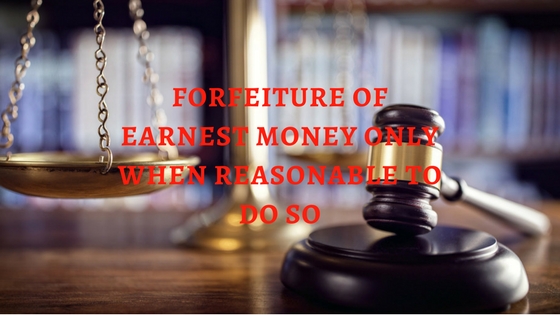Aapka Consultant Judgment Series- In this series, we are providing case analysis of Landmark Judgments of Hon’ble Supreme Court of India.
Shri Hanuman Cotton Mills & Ors. v. Tata Air Craft Limited
AIR 1970 SC 1986: (1969) 3 SCC 522
JUDGES: C.A. Vaidialingam, I.D. Dua and J.M. Shelat
Date of Decision: 28-10-1969
FACTS :-
This appeal by special leave has been filed by the appellant-plaintiffs against the judgment and decree passed by the Division Bench of the Calcutta High Court who affirmed the judgment and decree of the Ld. Single Judge. The appellant-plaintiffs contracted with the respondent-defendant to purchase from them 4000 tons of area-scrap for Rs. 10,00,000 and paid Rs. 2,50,000, being 25 percent of the purchase price. One of the conditions, among other being, that if he failed to pay the balance of the purchase price in accordance with the contract, the deposit would stand forfeited and the contract would be rescinded. The buyer defaulted and the seller forfeited the amount of deposit. The buyer sued to recover it.
ISSUE :-
Whether the sum paid by the plaintiffs as and by way of part payment or as earnest deposit entitles the defendants to forfeit it?
JUDGMENT :-
The Hon’ble Supreme Court has enunciated certain principles regarding “earnest” which were:
- It must be given at the moment at which the contract is concluded.
- It represents a guarantee that the contract will be fulfilled or, in other words, ‘earnest’ is given to bind the contract.
- It is part of the purchase price when the transaction is carried out.
- It is forfeited when the transaction falls through by reason of the default or failure of the purchaser.
- Unless there is anything to the contrary in the terms of the contract, on default committed by the buyer, the seller is entitled to forfeit the earnest.
From the above principles, the court has concluded that the amount deposited by the appellant-plaintiffs is a deposit as “earnest money”. Also, when the company’s terms of business were applied to the contract, one of the clauses clearly states that the amount deposited by the appellant-plaintiffs with the company shall remain with the company “as earnest money”, to be adjusted in the final bills. Therefore, there is no ambiguity regarding the nature of above payment and the rights of the respondent to forfeit the same, when the breach has been committed, cannot be assailed.
The Court also concluded that the respondent-defendants were entitled to forfeit the said amount because the appellant-plaintiffs have failed to establish the unreasonableness attached to the amount required to be deposited or the clause regarding forfeiture amounted to stipulation by way of a penalty. If the appellants were contesting the claim on any such grounds, they should have laid the foundation for the same by raising pleas or by giving evidences in the court regarding the same so that the respondents would have a proper opportunity for meeting such a claim.
HELD :- The Court held that the deposit in question was intended as earnest money. The agreement clearly provided that the deposit would carry no interest and would be adjusted in the final bills. It was a part of the price and the seller was entitled to forfeit it. The Court dismissed the appeal with costs.
You may check my blog and see some details about loans. What loans really suits your needs? Find out here.
To Get Legal Opinion from Advocates/ Legal Experts, Please click here
To Get Legal Opinion from Retired Hon’ble Judges, Please click here












